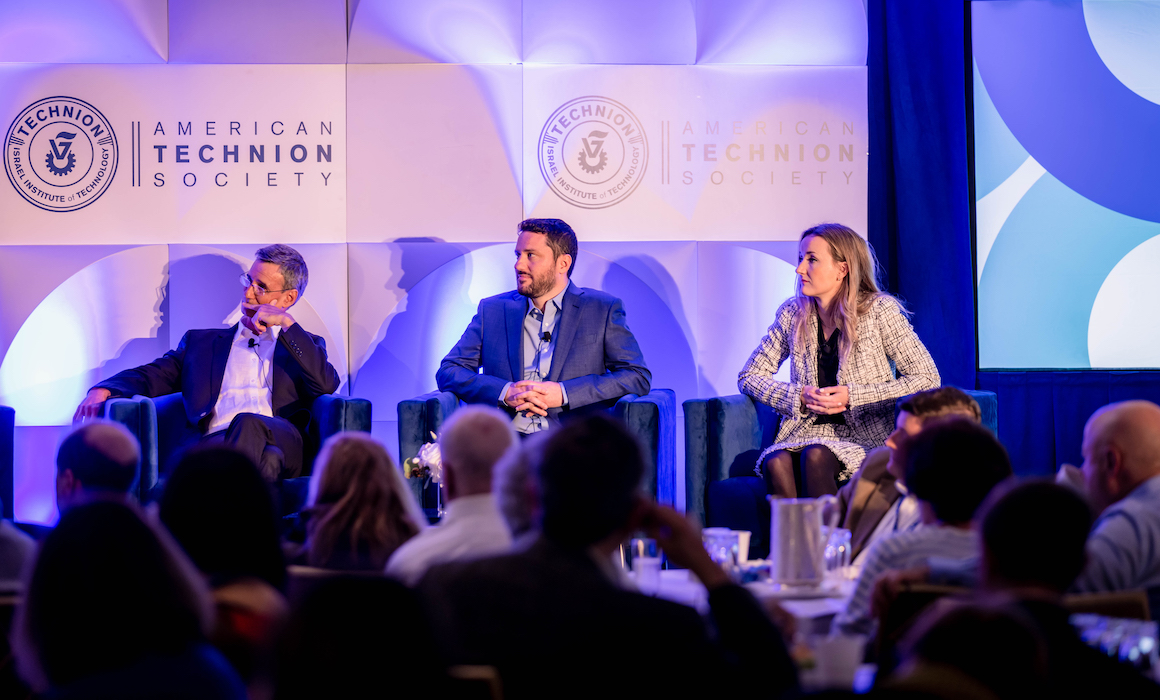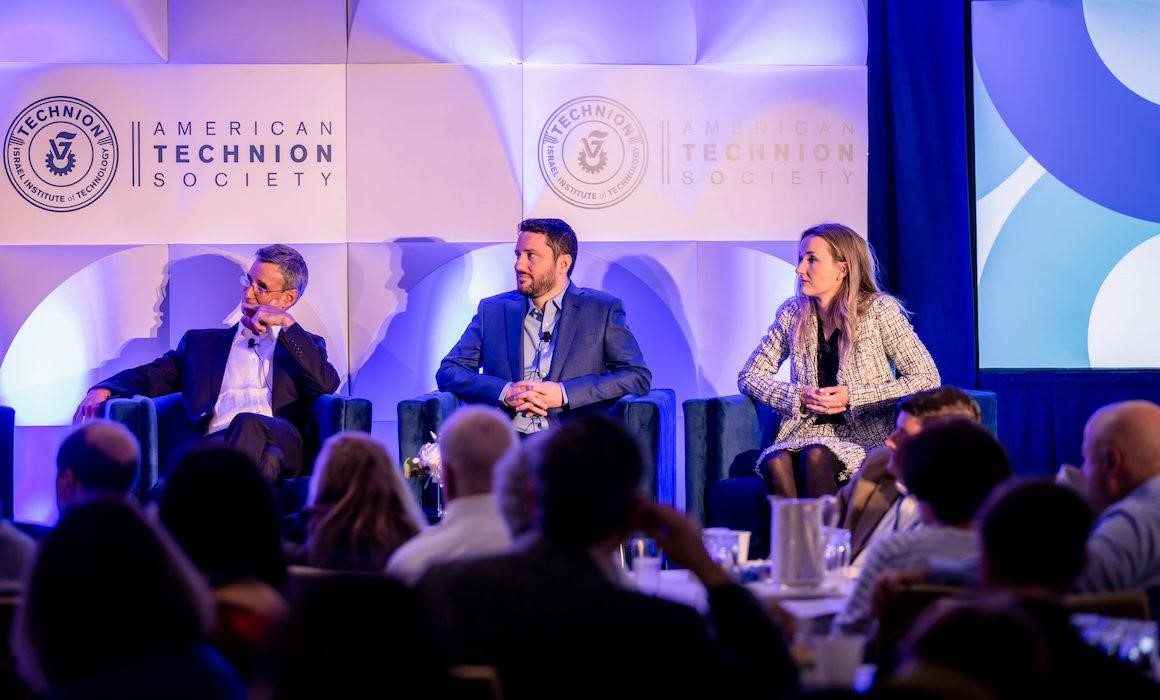Sustainability and Catalysis: Changing Lives for the Better

“I think crude oil is amazing,” said Associate Professor Charlotte Vogt, who ticked off a list of products from purses to curtains and shag rugs that are made from fossil fuels. “That’s probably not something you’d expect to hear from somebody who is focusing on sustainable processes,” she added. But while she called “humans and oil” a love story, she warned that it has not been a happy one for our environment. “What we emit today (in carbon dioxide emissions), will have a maximum effect in global warming in 10 years. And that’s scary.”
Prof. Vogt was speaking at the American Technion Society’s Presidential Forum in March on sustainability and catalysis, moderated by Professor Peter Schreiner of Justus Liebig University in Germany, alongside Technion researchers Professor Ilan Marek of the Schulich Faculty of Chemistry and chair of the soon-to-be-launched Center for Sustainable Processes and Catalysis, and Associate Professor Matthew Suss, head of the Cleantech Innovations Lab.
A catalyst is something that speeds up a chemical reaction, or lowers the temperature or pressure needed to start one, without itself being consumed during the process. Likening the “magic of catalysis” to helping a person climb a steep hill to get home, Prof. Schreiner explained a chemical catalysis makes the proverbial hill smaller, reduces the energy needed to perform a task, sends the reaction in the right direction, and is sustainable.
While many of us think our to-go coffee cups are completely recyclable, they’re not. Prof. Schreiner quoted statistics stating that some 16 billion coffee cups, which are coated inside with plastic laminate and contain plastic lids, are dumped into U.S. landfills every year. With current world population projections indicating the global population will reach 10 billion people by the year 2057, up from 7.8 billion in 2020, the number of trashed coffee cups will grow exponentially.
“If we want to keep the same quality of life, we have to produce more,” said Prof. Marek. Since we need the added products, the question becomes, “how can we produce better?” That’s where the new Technion Center for Sustainable Processes and Catalysis comes in.
The Technion’s vision is to create a multidisciplinary incubator of young talents that would become a hub for sustainability and catalysis in Israel. The Technion would recruit young researchers worldwide from various disciplines. They would spend seven years working side-by-side at the Center, researching and creating new catalysts that could be applied to biomedical engineering, food tech, chemical engineering, and other fields. They would then return with an enriched perspective to their individual faculties at the Technion. “This is something unique. Not a single place in the world will have such a center,” Prof. Marek said.


